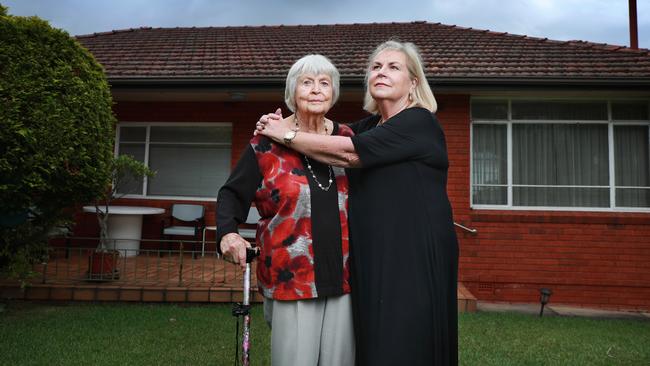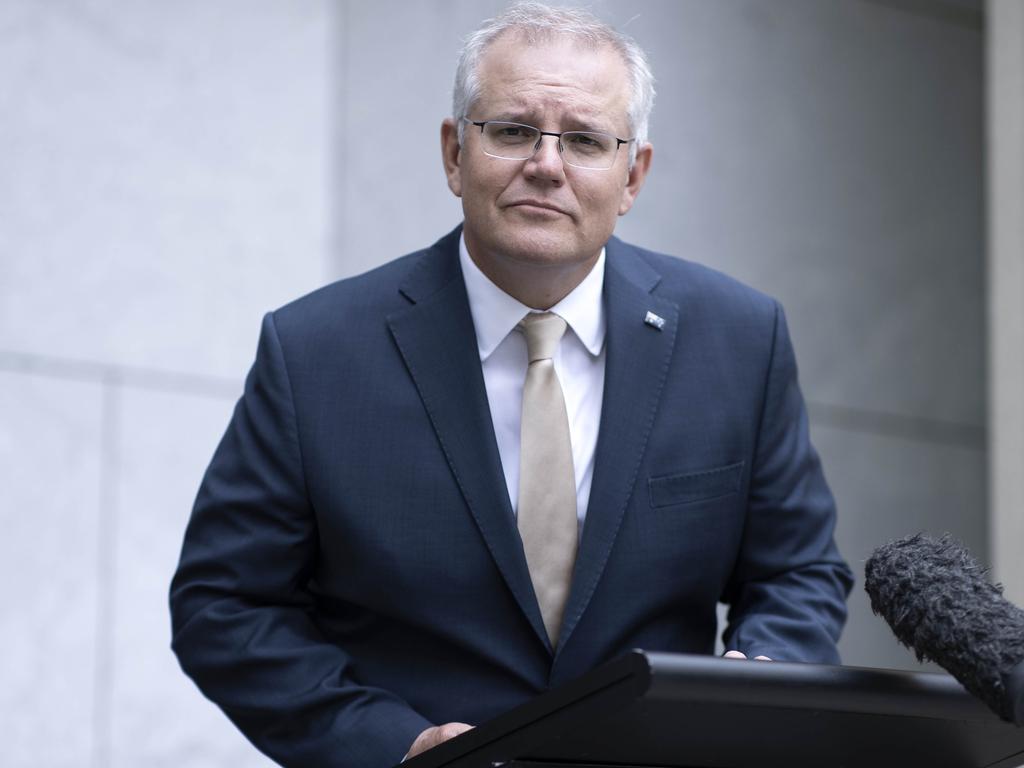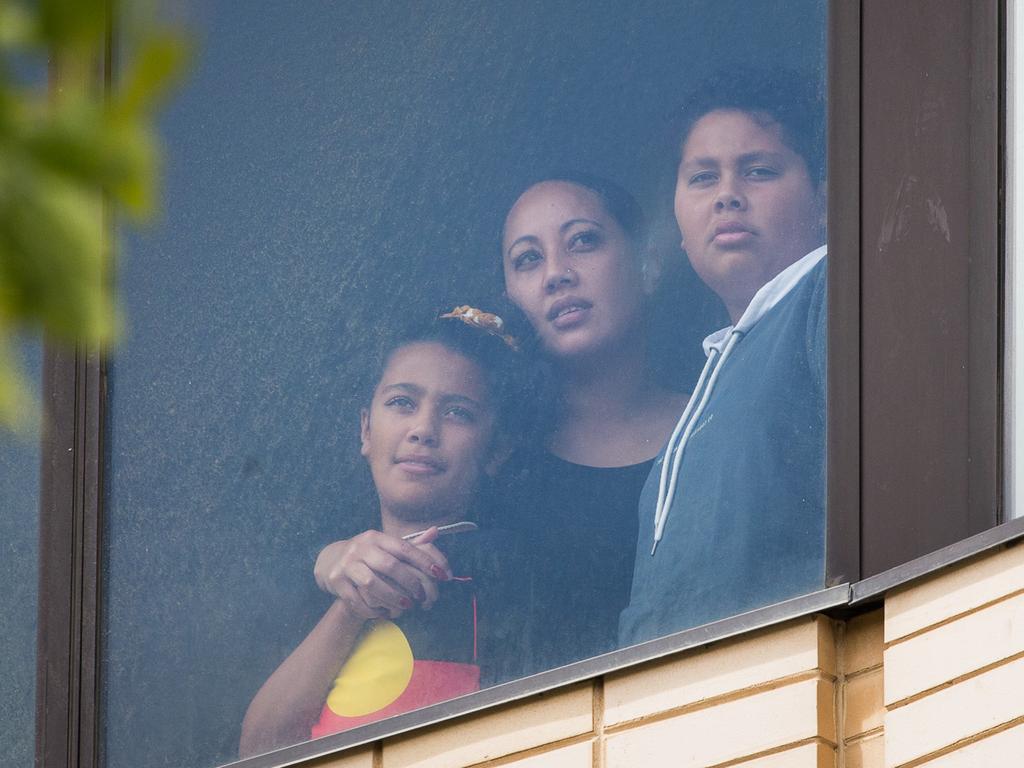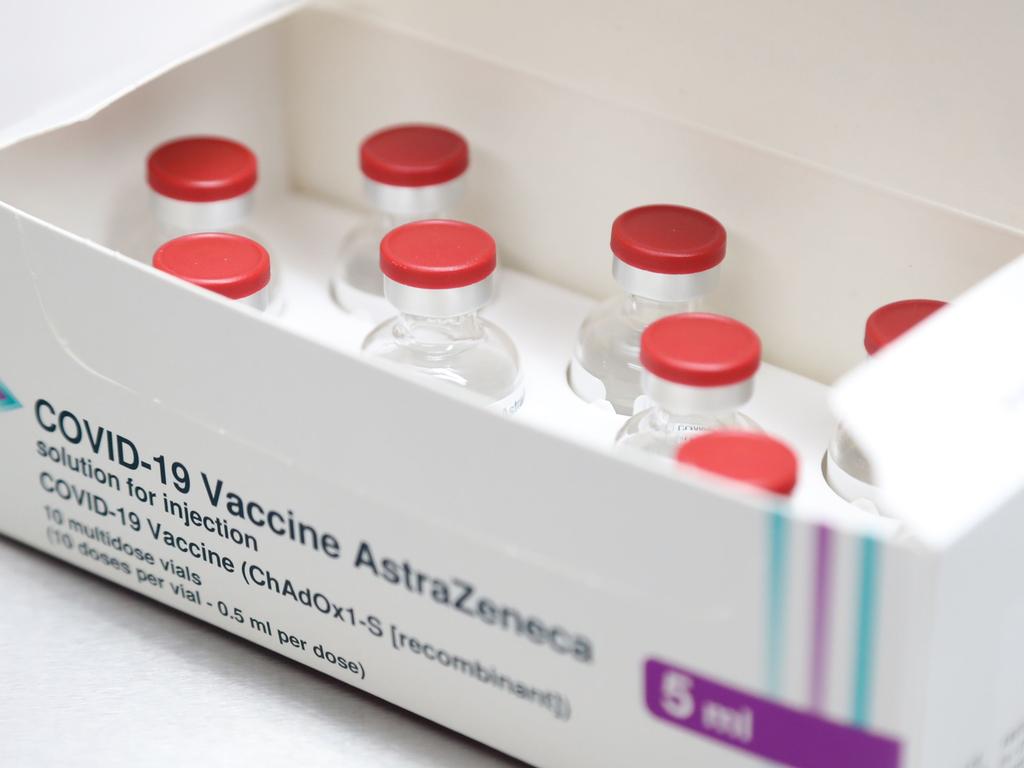3700 ‘border exiles’ mired in Covid limbo
The number of Victorians stranded in NSW and trying to return home has surged to more than 3700 as authorities struggle to process applications for exemptions.

The number of Victorians stranded in NSW and trying to return home has surged to more than 3700 — and is likely much higher — as health authorities struggle to process applications for special exemptions from the state’s tight border restrictions.
Despite only five new locally acquired cases across the country, Victoria is not expected to reopen its northern border for weeks, with 3450 applications yet to be processed.
That was a sharp rise from the 2800 applications outstanding on Tuesday, with more than a dozen Victorian families stranded in NSW telling The Australian they had not requested exemptions, given the slow pace at which they were being processed.
The strict restrictions on returning home, and lengthy delays in processing exemptions, have prompted concern from federal Coalition and Labor MPs, civil libertarians, economists and epidemiologists that the border closure was inflicting serious harm.
Analysts, including CBA chief economist Stephen Halmarick, said on Wednesday that while the border closure had yet to have a serious effect on the economy, “if the ban on interstate travel were to extend into February or March … that would have an impact”.
But Victorian Health Minister Martin Foley made it clear the border would not reopen for weeks: “On current projections, it’s unlikely the border will be removed before the end of January.”
The state’s coronavirus testing commander, Jeroen Weimar, said returning travellers stuck in NSW would need to be patient while health authorities dealt with the most urgent applications for exemptions to the restrictions.
By Wednesday, a team around 40 staff had processed 295 applications.
Some Victorians, including Janet Yarrington, 60, told The Australian they were not sure whether they would be eligible to make an exemption application, with Ms Yarrington fearful she would be unable to make it back to Victoria in time to care for her grandchildren, James, 3, and Louis, 9 months, allowing her daughter Ellen to go back to work following maternity leave.
Ms Yarrington, from Neerim East, east of Melbourne, travelled to Sydney in late November to be with her dying father, who passed away on December 3. She has been busy ever since, winding up his affairs and caring for her 90-year-old mother Gwen, who needs to move into a retirement home and out of the West Ryde house she shared with her husband for more than six decades.
When Acting Victorian Premier Jacinta Allan announced on New Year’s Eve that Victoria’s border would close to anyone coming from NSW from 11:59pm on January 1, Ms Yarrington said she was not in a position to return home. “I couldn’t even consider it because mum was not in a position to be left alone,” she said.
“My understanding when the announcement was made was that I’d still be able to come home and do two weeks in hotel quarantine, but now I know that’s not an option — I really don’t know how long I’m going to be stuck here. It’s not like I’m up here having a holiday. I’m working my butt off to get things done, and I need to know that I’ll be able to come home, and so does Ellen so she can plan to go back to work.”
Ms Yarrington said she had tried repeatedly to call the Department of Health and Human Services in the days following the closure announcement but was not able to reach anyone.
The border closure also forced the cancellation of plans for Ms Yarrington and her extended family to gather in lieu of a funeral and hold a private memorial ceremony on what would have been her father’s 92nd birthday on January 16.
Liberty Victoria, a human rights and civil liberties organisation, expressed concerns about whether the restrictions were appropriate, warning the onus was on the government to explain why alternatives such as home quarantine were not an option.
“Obviously there’s a need to take proactive steps to limit the spread of COVID, but the way this particular policy has been implemented does raise concerns and is causing real stress and problems for people who are now stranded away from home,” Liberty Victoria president Julia Kretzenbacher said.
Veterans Affairs Minister Darren Chester became the latest federal politician to urge the Victorian government to be “more compassionate” and create a “pathway back” for travellers stranded in NSW.
Mr Chester’s eastern Victorian electorate of Gippsland shares a border with NSW.
“There will still be people who have been in more remote areas in NSW, maybe without mobile phone coverage, (who) simply didn’t even hear about the closure until it was too late,” he told ABC radio. “We need to find a pathway back for people who haven’t done anything wrong.”
The Nationals MP’s comments follow similar remarks from Labor’s government services spokesman Bill Shorten on Tuesday. Separately, Labor’s assistant financial services spokesman Matt Thistlethwaite has written to his Victorian counterparts, Mr Foley and Police Minister Lisa Neville, pleading for his constituents Jennifer Papaconstuntinos and Clinton Hamence to be allowed to leave hotel quarantine and return home to their three young children.
As the couple told The Australian on Sunday, they had obtained permits and thought they were visiting Melbourne for 48 hours when they were unexpectedly detained on Friday and refused the option of flying home.
Despite the closure of the border, and those between NSW and other states and territories, economists remain optimistic about the recovery in 2021.
Mr Hamarick said the impact of travel restrictions “at the moment is more about the hit to tourism”. “But if the ban on interstate travel were to extend into February and March when normal business travel restarts, that would have an impact,” he said.
But Mr Foley said the hard border was likely to remain into February. “The goal of the hard border with NSW is to minimise the risk of the virus reseeding back into Victoria,” he said. “There is already evidence that has happened with the Black Rock cluster before the hard border was put in place.”
Those in Queensland and the ACT can drive to Victoria, but must apply for a permit first.








To join the conversation, please log in. Don't have an account? Register
Join the conversation, you are commenting as Logout